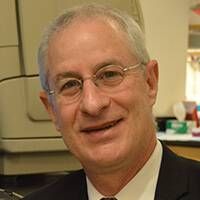Personalized Aging: Extending Lifespans and Healthspans
How medical science is customizing treatment and prevention strategies to do it
(This article is the second in a weekly Next Avenue series, The Future of Aging: Realizing the Potential of Longevity published by the Milken Institute Center for the Future of Aging. It was originally titled: Personalized Aging. The first article in the series was A New Model for the Future of Aging.)
Since the dawn of humanity, people have been seeking anti-aging remedies, and this field has continued to grow unchecked. Many billions of dollars have been spent on unproven and sometimes dangerous treatments as well as potentially useful but simplistic and broadly targeted, “one-size-fits-all” advice, often informed by limited data and anecdotal success stories.
In the last few decades, we have witnessed waves of contradictory dietary recommendations, such as low-fat, low-carb, caloric-restriction and low-protein, and seen popular supplements come and go (fish oil, vitamin C, vitamin E, vitamin D). The list goes on and on.
Seeking Guidance About Anti-Aging and Aging
When we seek guidance, the best offerings often come from people who understand what makes each of us unique and can relate their wisdom to our individual goals. Why should aging — and the recommendations for healthy longevity given to aging adults — be different?

Taking individual characteristics into account in supporting maximal longevity is a concept I’ve termed “personalized aging.” And, as we try to ensure that the additional years in our extended lifespans are spent in good health, this idea’s potential impact is enormous.
In recent years, phenomenal advances in genetic research, coupled with increased application of high-performance computing to the analysis of large data sets, have transported this idea of precisely tailored health recommendations from the realm of science fiction to a likely next step in the progression of the medical field.
Personalized, or Precision, Medicine
The science of genomics has undergone a massive increase in applicability and accessibility in a relatively short time. What started with the discovery of gene mutations tied to specific rare diseases is now enabling physicians to determine which treatments for common age-related illnesses — from diabetes to cancer — will be most effective based on the patient’s genome. This approach is often referred to as personalized, or precision, medicine.
Over the same period, the cost of genetic sequencing has shrunk from several million dollars per individual genome to a few hundred dollars.
Similarly, it is now possible to determine one’s genetic makeup from the comfort of home, sending a vial of saliva through the mail.
Recommending Preventive Interventions Individually
In this time of incredible opportunity, our goal is to gain support for, and conduct, large genome-wide association studies, develop even more powerful computing techniques and sift through millions of genetic variants to identify those that determine responsiveness to diets, exercise, supplements and more. This information can then be used to recommend optimal preventive interventions on an individual basis.
For instance, the emerging discipline of “nutrigenomics,” or the study of how dietary factors interact with our genes, is especially promising.
As scientists, including several here at the USC Leonard Davis School of Gerontology, uncover links between specific diets and resistance to aging’s maladies, we recognize that there isn’t one ideal diet for everybody. Instead, the benefits of dietary variations — from high-protein to veganism to periodic fasting to Mediterranean and everything in between — appear to vary based on genotype.
Providing personalized, genomics-based guidance could make a huge difference in our society’s perception of aging and the huge costs of age-related disease that we collectively bear.
Personalized aging strategies can identify which diseases one might be at high risk for and develop appropriate prevention methods. Someone whose genes put them at high risk for diabetes should probably adopt a low-carbohydrate diet, while a person at high risk for coronary disease will benefit from a Mediterranean diet. Similarly, an individual with a genetic predisposition to cancer may reduce their risk by eating a low-protein diet.
Advice About Alzheimer's
Perhaps the most compelling case for personalized aging advice can be made for people with a genetic susceptibility to Alzheimer’s disease, which can now be determined with precision. The risk can vary dramatically based on the variants of several genes, particularly one known as APOE. People with the alleles [different versions of a gene] of APOE4, indicating high Alzheimer’s risk, could initiate a customized diet and exercise program along with brain-training exercises, enabling themselves to remain cognitively sound and independent for a longer portion of their golden years.
Much like the precious advice from those who know us best, receiving personalized aging support informed by genetic and lifestyle factors could help us better understand ourselves and empower us to confidently take steps to improve our lives.


